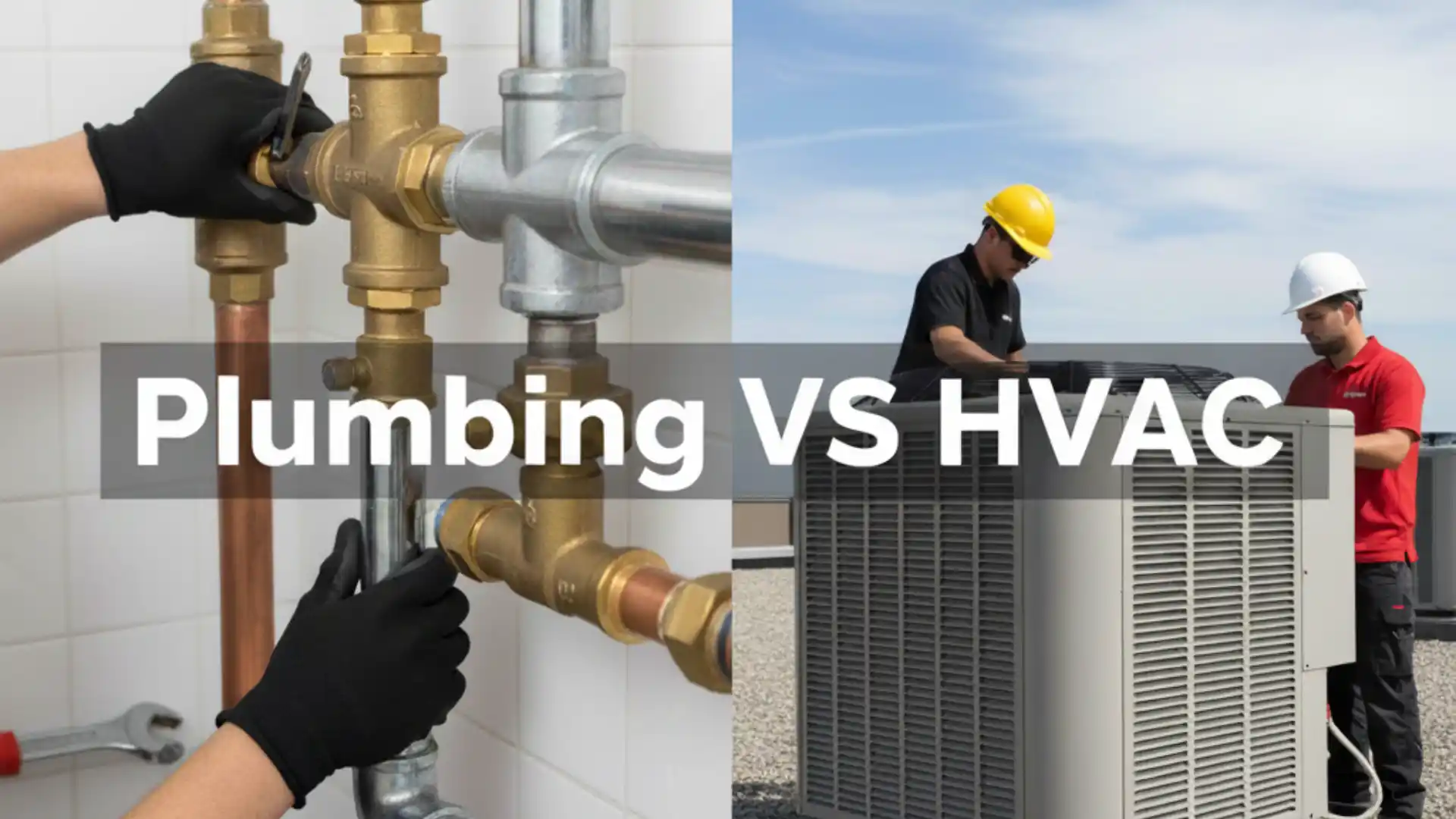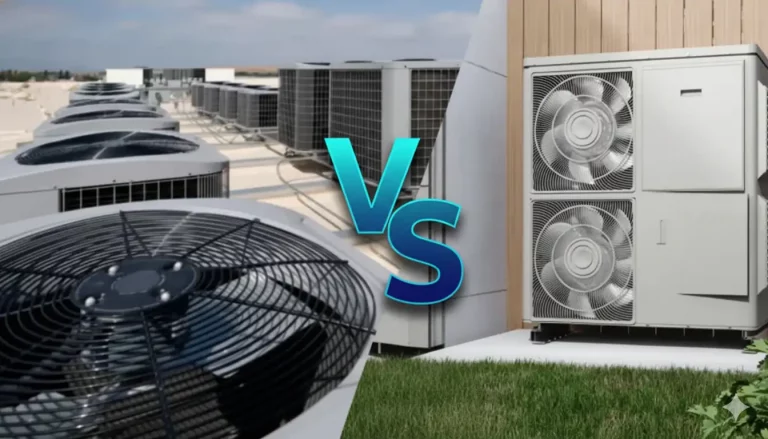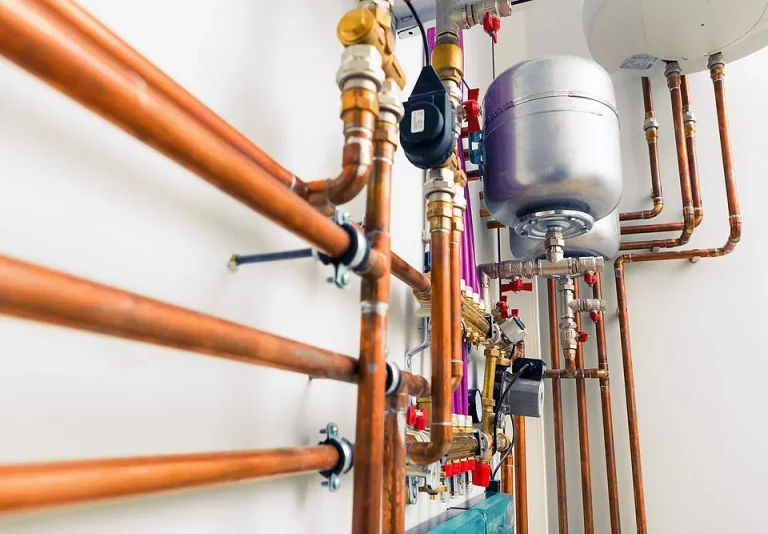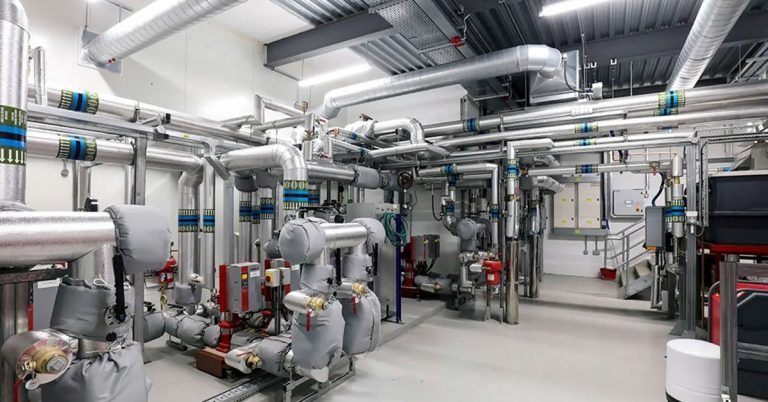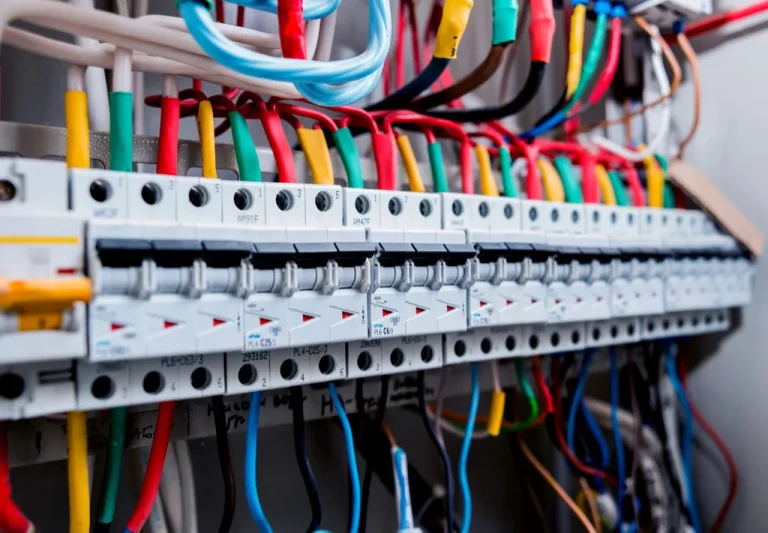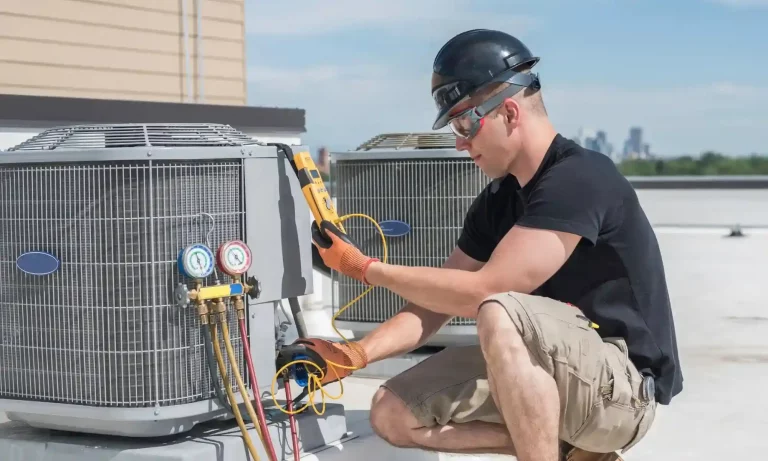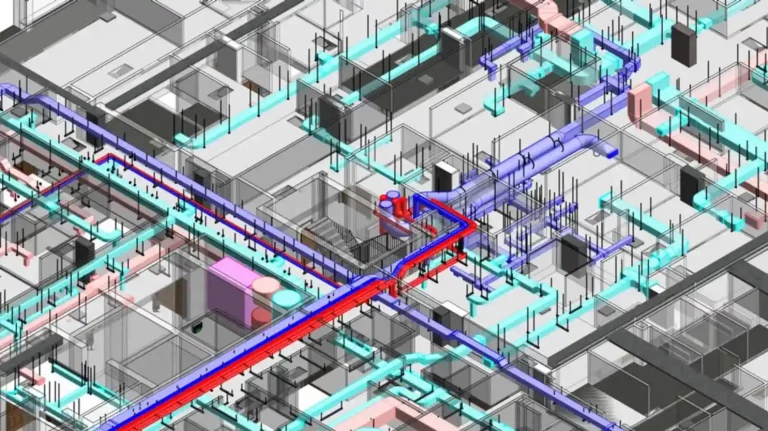HVAC vs Plumbing: Key Differences to Help You Decide
If you want to start a career path and cannot make a decision between HVAC vs Plumbing. Both of these disciplines are popular and in high demand. In each trade, you have to work with your hands, but they notably vary from one another.
TO GAIN A BETTER PERSPECTIVE, LET’S BREAK DOWN THESE TWO TRADES INDIVIDUALLY AND THEN DELVE INTO HOW THEY DIFFER FROM ONE ANOTHER.
HVAC – Scope of Work & Professional Responsibilities
A mechanical system comprising heating, ventilation, and air conditioning systems that control the indoor climate of a space. An HVAC expert technician assures that the installed system is efficiently maintaining and controlling the atmosphere as per the occupants’ requirements.
Their expert technical services include:
- They are responsible for installing an HVAC system, as well as providing maintenance and repair services
- Detect or identify problems related to heat pumps or air conditioning units
- They also make sure that ductwork is properly sized and installed
- Make sure that the thermostat is programmed before installation
- It’s their responsibility to ensure that indoor air quality and humidity are under control
- They also work with refrigerants and complex electrical components.
- Stay current with building codes and evolving energy-efficiency standards, which vary by U.S. state
Professional Plumber’s Role Explained!
A professional plumber is responsible for anything water-related, from installing, maintaining, and repairing a plumbing system. They also ensure that a piping network is installed as per the project’s blueprints and drawings.
The core duties of a professional plumber are as follows:
- Assure that the water supply line is properly installed, ensuring its functionality
- Damaged pipes fixing
- Broken pipes replacement or repair
- Making sure that the water pressure throughout the structure is seamless.
Difference Between HVAC and Plumbing Career Paths
Let’s talk about career options and salary. Now these fields are similar in many ways, but there are still some distinctive areas. The key Difference Between HVAC and Plumbing in terms of jobs and certifications is explained below:
Certification Requirements
Plumbing typically requires local licences. You get yourself registered and start as an apprentice. Then gradually climb up the career ladder to master plumber.
For HVAC, however, an EPA or Environmental Protection Agency Certification is required. In the United States, for working with refrigerants, this certification must be acquired.
Remuneration Based on Expertise
If you are just starting your career, then for the first few years, you have to make your mark. Once you have achieved that, you can achieve the numbers that you desire.
The average plumber’s salary is $65,000 to $72,500 per year. As of 2025, national data shows median plumber pay closer to $68,000, with the top 10% earning over $100,000 depending on location and specialization. If you are highly skilled and experienced with lots of job opportunities, then you can pack around $122000 to $290000 max. Exceptionally high figures above $150,000 are typically tied to owning a plumbing business or working in specialized industrial markets rather than standard employment.
On the other hand, the average salary for an HVAC technician who is just starting is around $58,700 – $61000 per year. Updated 2025 figures show entry-level HVAC techs earning about $55,000–$65,000, with experienced professionals exceeding $95,000 in high-demand regions. But this can reach a maximum of $150000 to $200000. Owning an HVAC contracting company or moving into project management can push earnings higher.
Career Growth
From the perspective of growth, both careers are filled with numerous opportunities for career growth. However, it is understandable that you will start as a beginner with straightforward projects. Once you have attained ample experience in the field, you may be considered for more complex projects. Also, with the right expertise level, you can go for higher posts by continuously working on your skills and upgrading them.
Pursuing certifications in green energy systems or smart-home technology can accelerate advancement in both trades.
Trade-Related Technological Advancements
With the continuous evolution of technology, smart HVAC systems with computerized controls have been developed. This has opened the door for more advanced possibilities
In the trade of plumbing, plumbers are working with smart homes. This means that smart water systems are being installed through which plumbing systems can be controlled remotely.
Managerial Competency
By obtaining the relevant education, an HVAC professional can undertake the role of a cost estimator. HVAC Estimating Services are essential when it comes to dealing with HVAC projects. These professionals are responsible for creating a cost budget of the project, which includes material, labor, equipment, and overhead costs.
Many HVAC technicians take help from certified cost estimators when they are dealing with their own projects. It helps to keep the project on budget and make sure that it goes smoothly.
Similarly, Plumbing Estimating Services also play a vital function in plumbing projects. If you have an aptitude for calculating costs and creating budgets, then this job might be for you. In addition to knowing cost management, you’ll also need to know how to effectively use cost estimating software. Professional and reliable estimators are now using AI-powered software that helps to generate highly precise estimates! So, an MEP project without cost estimation is extremely risky.
LOOKING FOR A COMPREHENSIVE DIFFERENTIAL OVERVIEW OF HVAC AND PLUMBING? READ THIS ARTICLE TO KNOW
Conclusion
The mechanical and plumbing systems are two of the basic mechanisms on which buildings run. They control many important functions such as temperature regulation, water flow, and the drainage system, etc. If you are remotely interested in MEP systems or construction, then it’s very important to understand the difference between HVAC vs Plumbing. These systems have different functions, components, roles, and, not to mention, prices. An MEP expert has adequate knowledge of plumbing and HVAC systems, hence they are the backbone of a project. Together, these systems perform vital tasks and may overlap with each other’s functions. Which is also why it’s easier to confuse them, but by now, you have an idea about the main differences.

